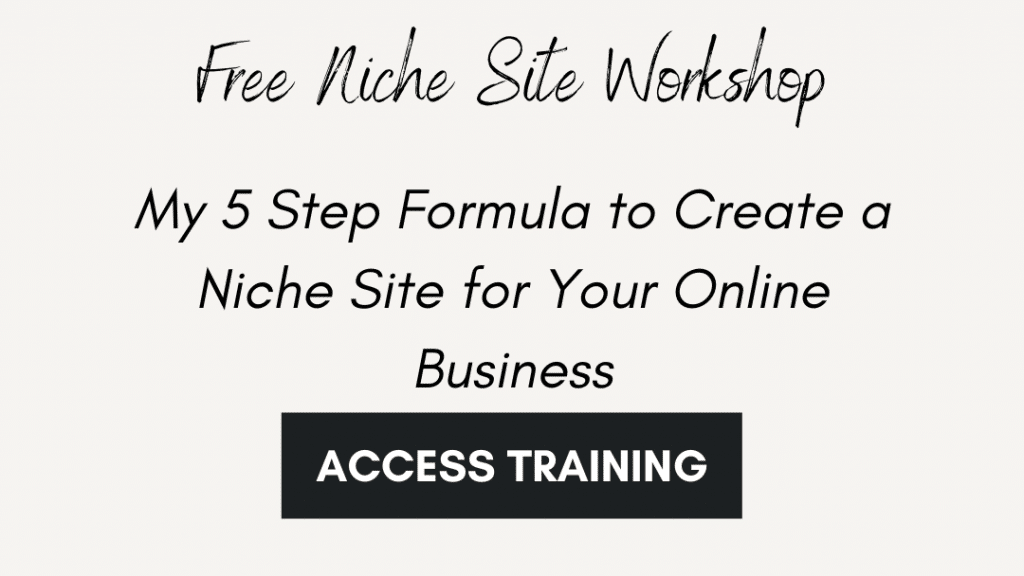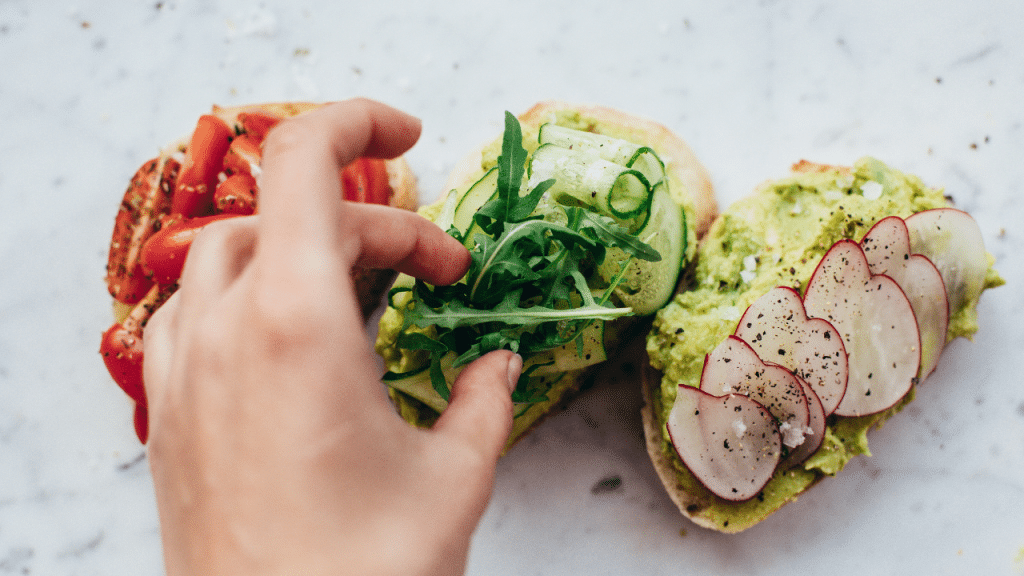The health and wellness niche is my true passion. Since I know that many of you who will find this post are wondering how to become a health blogger, I figured it would be useful to write up an article sharing exactly what I have learned over the past 3 years as a health blogger. The health and wellness niche is more difficult to succeed in than many other niches. It is censored and highly competitive. However, it doesn’t mean you should avoid it. In this post, I am going to share my top tips to run a health and wellness blog that earns a full-time income.
How to Become a Health Blogger
The technical side of starting your health and wellness blog will work the exact same way as starting a blog in any other niche (read my post Blogging for Beginners: How to Start Your Blog in 5 Days for guidance with picking your hosting provider and setting up your blog). The purpose of this post is to give you some practical tips that will apply specifically to the health and wellness niche and save you a lot of time. It’s all the stuff I wish I had known 3 years ago as I was learning how to become a health blogger myself.
What Is a Health Blogger
Before I get into my tips, I would like to make sure we have the same understanding of what it means to be a health blogger. A health blogger is someone who writes blog posts about health topics. A health blogger doesn’t necessarily have credentials in her niche. She can be sharing things that she learned from experience. However, good health blog posts should include references to studies and research that support any health claims.

My Experience as a Health Blogger
I started flirting with the world of health blogging about three years ago. I was an avid reader of health books as I was constantly experimenting and trying new things to improve my own health. I thought it would be fun to document my journey on a blog to interact with others who had a similar passion. At this point, I had absolutely no idea about how to monetize a blog and drive traffic to a blog. I kind of thought you just publish stuff online for people to find it and share it. I guess I imagined that when something is published online, it gets read.
Gradually, I started to understand the importance of picking a niche, so I decided to settle on the diet that helped me most, which was the Paleo Diet. Unfortunately, I outgrew my niche and also discovered that my niche was more like a recipe niche, which wasn’t what I wanted for my blog (also why researching your competitors is essential). My Paleo blog is still online and growing my mailing list even though I no longer publish on it.
Then, I decided to move on to a fasting blog. My fasting blog started consistently earning a few hundred dollars each month after a bit more than a year. I know I am on the right track with this one, although if I had known what I know now, I would have picked a different URL and blog name. Keep reading to learn why.
Practical Tips If You Want to Become a Health Blogger
So, you are passionate about health and wellness. Maybe you have conquered an illness of some kind and you want to help others do the same. Or you never get tired of learning about natural cures for everyday problems. Whatever it is that is driving you, keep reading. My practical tips will help you avoid making the same mistakes I made.
1. Niche Down
Niching down is always important but even more so when you are considering how to become a health blogger. Why? Because it will help to eliminate some of the competition, which will enable you to become an authority faster in your niche. I explain that in my Niche Site Workshop as well. Don’t forget to sign up to see the whole process in action.

Health Blogging Niche Examples
When you start a blog, niching down is always a good idea. Even more so in the health and wellness world. Let me give you some health niche examples:
- Intermittent Fasting
- Specific diets (low lectin, low histamine, WAHLS protocol, Paleo, Keto, Vegan)
- Intuitive eating
- Fitness (specific types of workouts like bodybuilding or yoga)
- Anti-aging
- Gut health
Decide what specific health topic you want to talk about over the next year or so.
2. Don’t Limit Your Growth
Even though picking a micro-niche for your health blog is very important, I recommend you pick a blog name and URL that are not too niche-specific. I have made this mistake too many times. I limited my growth and had to start over from scratch. Your blog name and URL will not impact your Google rankings. What matters is your content. Bloggers almost inevitably find that their blogs take on a different tangent than they expected. As you learn and grow, your blog is likely to evolve with you.
Moreover, you will discover what your audience wants to know. It may be different than what you thought. If you pick a blog name and URL that are too niche-specific, you are limiting your growth. Just find a nice catchy name that somewhat relates to what you are talking about, but making vague enough to encompass other health topics.
Read Top 9 Most Practical Tips for Naming a Blog for more help with naming your blog.

3. Know Your Competitors
Researching your competitors will give you an idea of what your blog might look like down the line. There are three main ways I recommend you research your competitors:
- Write down the Websites you already enjoy. You probably already follow some health experts that you love. Check out their Webstites. Make a list of those that look somewhat like what you would like to create.
- Google keywords you will are planning to use. Google some of the topics you want to talk about. The search results will not only help you find your competitors but they will also help you determine if you need to narrow down your niche further. If all the sites that pop up are big sites with tons of traffic, you need to be more specific.
- Check your keywords on Pinterest. You will see different search results on Pinterest, so why not check what you can find there?
Knowing your competitors will help you define your content strategy as well as your monetization strategy. Make a list and keep it safe for future reference too. For a deep dive into researching your competitors, read Top 3 Methods to Find Your Blogging Competitors the Easy Way.
4. Pick Your Main Monetization Strategies
I recommend you pick one or two main monetization strategies right from the beginning. Your main goal is to earn an income, right? Blogging about random topics will not achieve that. To drive the right kind of traffic to your blog, you need to know what you are selling. Then, you can write about topics that relate to the products you want to promote. Eventually, you should consider creating an online program or offering online coaching. However, when you start your blog, picking an affiliate product is your best bet. Read How to Find Affiliate Programs In Your Niche in 3 Simple Steps.

5. Pick the Right Blog Topics
We touched on this a little when we talked about niching down and researching your competitors, but I think finding the right blog topics deserves its own point. As you think about how to become a health blogger, you most likely have some topic ideas already. You are passionate about health and you want to share some information on health topics that matter to you. This is an excellent starting point and your topic ideas will help you find your competitors. However, once you know your competitors and your monetization strategies, these will serve as guides when you pick your topics as well. When you see which ones of your blog posts take off, this will be another factor to consider.
6- Pay Attention to Your Audience
Paying attention to your audience is one of the most important things you can do to succeed online. As an online entrepreneur, you are a problem solver. What problems does your audience want to solve? That’s why in my onboarding sequence for my health blog, I like to ask my new subscribers what their main struggle is when it comes to weight loss. Guess what? I almost always get the same answer. This answer should guide my language in my blog posts, my sales pages, my social media posts, etc. Makes sense, right?
To recap, here’s how you will define your content strategy:
- Make a list of the health topics your are passionate about.
- Look your topics up on Google and Pinterest.
- Find your competitors to discover more blog topics that relate to your monetization strategy.
- Discover what your audience is interested in and produce more similar content.
If you would are curious about my onboarding sequence, I offer free templates in my course My 5-Step Formula to Create a Niche Site for Your Online Business in Just 21 Days.

7- Consider Alternative Growth Strategies
I am not going to lie to you, earning a full-time income as a health blogger will take time and perseverance. Don’t expect to become an overnight success! Fortunately, there are some things you can try to speed up your results. I am in the process of implementing some of these strategies myself and I will update this post when necessary, but here are some alternative growth strategies to consider:
- More offerings: If you have more than one program to sell, your fans will buy more than one program. As you learn and grow, consider selling a few different offers that can help generate enough income to achieve your business goal.
- Facebook ads: This is a more advanced strategy but one that most online marketers will try at some point or another.
- Pinterest ads: I know some entrepreneurs are seeing an excellent return on investment on Pinterest. Good strategy to consider.
- YouTube ads: Another strategy that cost money, but that has the potential to pay back big time.
- Social Media: The advantage of social media is that you can produce content that goes viral. The problem is, producing content that goes viral can be elusive. If you love being on social media anyway, why not give it a try?
- Collaborations: Networking with other health bloggers is an excellent way to share audiences and grow your traffic faster.
In Summary
I hope you find these 7 tips on how to become a health blogger helpful. They summarize the most important points I have learned during my career as a health blogger so far: niche down, but not too much, know your competitors and monetization strategies ahead of time, create your content with purpose, and be open to trying new things to grow your audience.


